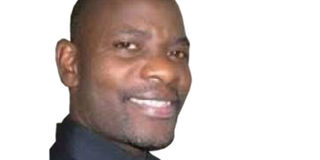Prime
In Bobi Wine, Baganda have the best chance to shed ‘political condoms’ label

I will begin with a disclaimer: The views expressed in this article are not meant to promote tribalism — which, according to the dictionary definition, is “behaviour, attitudes, etc that are based on supporting and being loyal to a tribe or other social group”.
They are meant to speak to the reality about how politics in our country works.
President Museveni’s main challenger in the January 14 election will be a Muganda politician named Robert Kyagulanyi, aka Bobi Wine. The Baganda are Uganda’s largest ethnic group and account for the highest proportion of the population but have never had one of their own leading Uganda in the real sense. Non-Baganda politicians have tribalistically and opportunistically used Baganda to further their political interests.
Baganda have been used and manipulated so much that in the early 1990s, one prominent politician called them “political condoms”. Every prominent politician who is eyeing the presidency tries their best to get the support of Baganda because it is crucial, given their numerical strength and other advantages.
In 2001, for example, Dr Kiiza Besigye launched his presidential campaign with an informal change of his name to Kizza, a Baganda name. Some did not pay attention to the change, but it had a lot to do with the support of Baganda.
The current President has worked with Baganda right from the days of his armed rebellion in the 1980s and has relied on their support. Luweero was home to his Bush War, and the President used many Baganda child soldiers there to fight Milton Obote’s government.
Mr Museveni has named Baganda to ministerial positions, and most of his Finance ministers have been Baganda. They include Prof Ponsiano Mulema (first Finance minister), Jehoash Mayanja Nkangi, Gerald Ssendaula, Syda Bbumba and Maria Kiwanuka. The vice presidency has also been occupied by three Baganda: Dr Samson Babimululu Kisekka, Gilbert ‘Mahogany’ Baalibaseka Bukenya and Edward Ssekandi, the current vice-president.
One other Muganda, Prof Apollo ‘Lugubrious’ Nsibambi, has been prime minister. Four of the men mentioned have since passed on, leaving Mr Museveni in power. But their positions are basically byoya bya nswa (no value).
Baganda and their Luweero, which bore the brunt of Mr Museveni’s armed rebellion, have gained little.
Much of their land is gone; they live in sordid poverty. Mr Kyagulanyi remains their best hope. He is the first Muganda to pose a serious challenge to the President and to shake up the political landscape in ways that even veteran politicians can only dream of.
Steep odds are still stacked up against him, but a groundswell of support for him from Baganda could weaken the regime’s grip on power.
This past October, Mr Kyagulanyi visited Mengo, the seat of Buganda government, and held talks with Katikkiro Peter Mayiga.
The kingdom is not supposed to endorse candidates, but it will definitely support Mr Kyagulanyi’s bid for the presidency. It has a vested interest in his presidential campaign.
“Young people that aspire for leadership positions should tell us the solutions they bring. How do you plan to handle the Buganda question?” Mr Mayiga asked.
The Buganda question, of course, is a federal status, for which Baganda have clamoured for decades to no effect. If they use their numerical strength and elect a politician who is able to deliver what they want, they could secure a federal status.
There are still big ifs and buts in Mr Kyagulanyi’s quest for state power. But he has just started, is young and has at least four more chances to run for president.
Mr Namiti is a journalist and former
Al Jazeera digital editor in charge of the Africa desk
[email protected] @kazbuk




